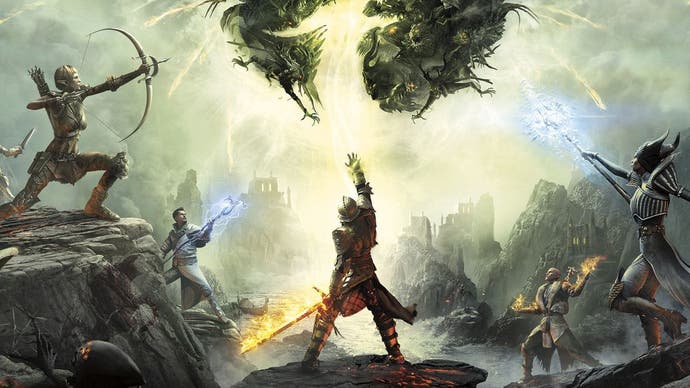Ex-Bioware producer gives insight into "BioWare magic"
Avoiding crunch.
Ex-Bioware producer Mark Darrah has released a video giving insight into the term "BioWare magic".
Darrah, who worked at BioWare for over 20 years including as an executive producer on the Dragon Age series, wants BioWare employees to stop using the term as it promotes "bad process".
In the video, he explains how game development is like a hockey stick. Usually it progresses steadily before hitting a tipping point where the various components of a game finally gel together.
"That's what people are talking about at the studio when they say 'BioWare magic'," he says. "They're talking about the fact that things come together really late and things get better really late. And that's terrible."
There may be magic in watching a game come together, but when this happens too late it often leads to crunch, Darrah said.
"BioWare magic is shit process," he says. "It's putting a name on something that's saying: don't worry, don't freak out because we know that at a future date, it's all gonna get faster and it's all gonna work out. But the reality is that 'working out', that's where crunch comes from and that's where delayed games come from."
Of course, BioWare magic also refers to evocative characters and interesting storytelling. But internally, it refers to this hockey stick structure of development, something that other development studios also follow.
"If you can find a way to get completion urgency into your project sooner, you can avoid... a lot of the nonsense caused by this," he says.
This development process may explain why we're yet to see too many details regarding the studio's forthcoming games Dragon Age 4 and the next Mass Effect.
Darrah's "rant" video was shared by ex-Bioware writer David Gaider, who followed up with further thoughts.
"It's like how science can seem like magic to those who don't understand science. This probably originated from those high up enough to have little awareness of what was actually happening," said Gaider.
"To them, I suppose, the way the teams would get their shit together and, on a consistent basis, turn projects that seemed to be floundering into - ta da! - great games in a very short time seemed like pure wizardry."
He continued: "There was magic at BioWare, don't get me wrong. And still is, I expect. The magic is passion. People who love what they do, and will make huge sacrifices to make games fans will adore.
"Passion can be abused, however. And there's nothing even remotely magical about THAT."











